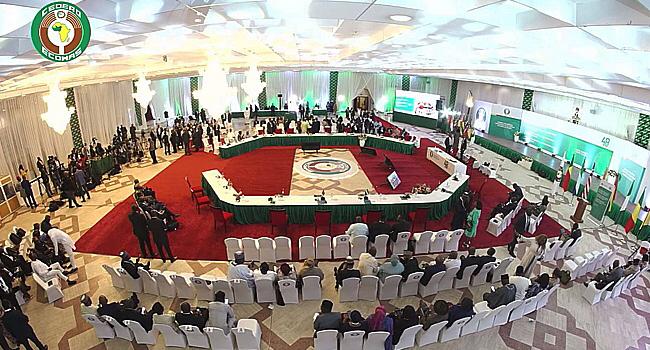The Economic Community of West African States (ECOWAS) has lauded Nigeria’s electronic Mining Cadastre Plus (eMC+) system as a shining example of regional integration, transparency, and digital advancement in the extractive sector. During a recent visit to the Mining Cadastre Office (MCO) in Abuja, ECOWAS technical experts commended the web-based mineral title management platform, advocating for its replication across West Africa to foster harmonized mining practices and attract investment. The eMC+ system, operational for over two years, positions Nigeria as a continental leader in digital mining administration, offering a model for other nations seeking to modernize their extractive industries.
Nigeria’s achievement in digitizing its mineral licensing process has been recognized as a benchmark in the region, providing a practical demonstration of a fully functional, transparent, and readily accessible digital system. This transparency extends to real-time license applications, global remote access, and the integration of beneficial ownership disclosures, including information about politically exposed persons. The ECOWAS delegation’s visit served as a crucial step in a feasibility study for establishing a regional Geo-Extractive Observatory and Key Distance System, aiming to harmonize mining cadastre systems across the region. Nigeria’s eMC+ system aligns seamlessly with ECOWAS’s vision of cooperation, harmonization, and integration in extractive governance, offering a concrete framework for regional advancement.
The MCO views the ECOWAS commendation as recognition of Nigeria’s leadership in mining sector reform and digital innovation. The foundation for this progress was laid by the Nigerian Minerals and Mining Act of 2007, which facilitated the transition from analog record-keeping to a sophisticated, web-based GIS-enabled platform. This digital transformation has streamlined processes, improved efficiency, and enhanced transparency, contributing significantly to investor confidence. The eMC+ system exemplifies Nigeria’s commitment not only to national development but also to supporting continental goals of sustainable and transparent resource management.
The collaborative effort behind the eMC+ system’s success has been highlighted, with the support of the Minister of Solid Minerals Development, Dele Alake, and the African Development Bank playing crucial roles. This partnership underscores the importance of collaborative initiatives in driving progress and innovation within the extractive sector. The eMC+ system has received overwhelmingly positive feedback from within the region, with delegates expressing surprise and admiration for the level of technological sophistication achieved. The system’s potential to bolster transparency, accountability, and investor confidence across West Africa has been widely acknowledged.
The impact of Nigeria’s eMC+ extends beyond its national borders, providing a valuable learning opportunity for other countries within the ECOWAS region. Peer-to-peer learning and knowledge-sharing are seen as essential for achieving regional success in mining governance. By studying Nigeria’s experience, both successes and challenges, other nations can tailor their own strategies for implementing similar digital systems. This collaborative approach will not only elevate individual member states but also contribute to establishing a common standard of excellence in mining governance across West Africa.
The ECOWAS technical review is expected to conclude with the adoption of Nigeria’s eMC+ system as the foundational framework for a unified, investor-friendly extractive data platform for the entire region. This harmonized approach will streamline access to transparent and reliable data, facilitating cross-border cooperation and promoting sustainable investment in the extractive sector. By showcasing a successful model of digital transformation, Nigeria is paving the way for a more transparent, efficient, and prosperous mining industry across West Africa.














